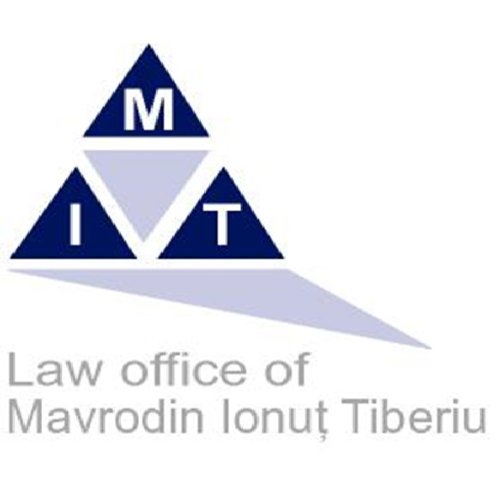Best Tax Increment Financing Lawyers in Constanța
Share your needs with us, get contacted by law firms.
Free. Takes 2 min.
List of the best lawyers in Constanța, Romania
About Tax Increment Financing Law in Constanța, Romania
Tax Increment Financing (TIF) in Constanța, Romania, is a financial tool used by the local government to encourage economic development and redevelopment in designated areas. Through TIF, future tax revenues generated by the increased property values within these specific districts are used to finance current improvements and projects. This method aims to stimulate growth in underdeveloped or declining areas without imposing additional tax burdens on constituents. In Constanța, TIF is seen as a means to foster investment in infrastructure, housing, and commercial development, ultimately enhancing the city's economic landscape.
Why You May Need a Lawyer
Engaging a lawyer with expertise in Tax Increment Financing can be crucial in navigating the complexities involved. Common situations where legal assistance may be necessary include:
- Understanding the legal ramifications for businesses and property owners in TIF districts.
- Negotiating TIF agreements and ensuring compliance with local regulations.
- Resolving disputes relating to TIF obligations or benefits.
- Advising on potential liabilities and benefits associated with TIF projects.
- Guiding developers through the approval process for TIF plans.
Local Laws Overview
The local regulations in Constanța governing Tax Increment Financing are embedded within the broader legislative framework of economic development in Romania. Key elements include:
- The designation of TIF districts must meet specific criteria, focusing on areas that are economically stagnant or underdeveloped.
- Legal statutes ensure transparency and public participation in the creation and management of TIF districts.
- The local government holds responsibility for determining the allocation of TIF funds and overseeing project implementation.
- Compliance with environmental regulations and urban planning standards is mandatory for all TIF-related projects.
- Regular assessments are required to evaluate the economic impact and success of TIF initiatives.
Frequently Asked Questions
What is the primary purpose of a TIF district in Constanța?
The primary purpose is to stimulate economic development and revitalization in areas that are currently underperforming by using anticipated future tax revenues for infrastructure improvement and development incentives.
Who benefits from TIF districts?
Both the local government and private developers benefit from TIF districts. The government can enhance city infrastructure without immediate financial strain, while developers get financial incentives for investing in these areas.
Can TIF funds be used for any project?
No, TIF funds are typically allocated to specific types of projects such as infrastructure, public facilities, and developments that align with regional planning goals.
How is a TIF district established?
A TIF district is established through a formal process involving feasibility studies, public hearings, and approval from local governmental bodies.
Is public input considered during TIF planning?
Yes, public hearings are part of the establishment process allowing community members to express their views and concerns regarding proposed TIF projects.
What happens if a TIF project fails?
If a project fails, the risk is typically carried by the developer, as future tax increments may not suffice to cover the costs. However, this may depend on specific agreement terms.
How long do TIF districts last?
TIF districts generally last between 15 to 30 years, depending on the time needed to realize the planned developments and repay the incurred costs.
Can existing businesses within a TIF district be negatively impacted?
While TIF districts aim to revitalize an area, some existing businesses may face challenges such as disruption during construction or increased property taxes once the area appreciates.
Are there environmental considerations in TIF projects?
Yes, all TIF projects must comply with national environmental regulations and ensure sustainable development practices are followed.
Can TIF be used to fund affordable housing projects?
Yes, TIF can be strategically used to fund affordable housing as part of broader redevelopment efforts to provide economic diversity within revitalized areas.
Additional Resources
For further information and assistance on Tax Increment Financing in Constanța, consider visiting or contacting:
- The Constanța Municipality Office, responsible for urban development projects.
- The Romanian Ministry of Development, Public Works, and Administration, which oversees national policies related to urban development.
- Local economic development organizations or business associations that promote investment within Constanța.
Next Steps
If you require legal assistance with Tax Increment Financing in Constanța, consider these steps:
- Consult with a lawyer who specializes in Romanian tax or property law to discuss your specific needs.
- Prepare detailed documentation of your project or interest, including any agreements or correspondence relevant to your case.
- Schedule a meeting with a local legal expert to explore your options and understand your rights and obligations.
- Stay informed about ongoing TIF projects and any changes to applicable local laws that might affect your situation.
Lawzana helps you find the best lawyers and law firms in Constanța through a curated and pre-screened list of qualified legal professionals. Our platform offers rankings and detailed profiles of attorneys and law firms, allowing you to compare based on practice areas, including Tax Increment Financing, experience, and client feedback.
Each profile includes a description of the firm's areas of practice, client reviews, team members and partners, year of establishment, spoken languages, office locations, contact information, social media presence, and any published articles or resources. Most firms on our platform speak English and are experienced in both local and international legal matters.
Get a quote from top-rated law firms in Constanța, Romania — quickly, securely, and without unnecessary hassle.
Disclaimer:
The information provided on this page is for general informational purposes only and does not constitute legal advice. While we strive to ensure the accuracy and relevance of the content, legal information may change over time, and interpretations of the law can vary. You should always consult with a qualified legal professional for advice specific to your situation.
We disclaim all liability for actions taken or not taken based on the content of this page. If you believe any information is incorrect or outdated, please contact us, and we will review and update it where appropriate.














